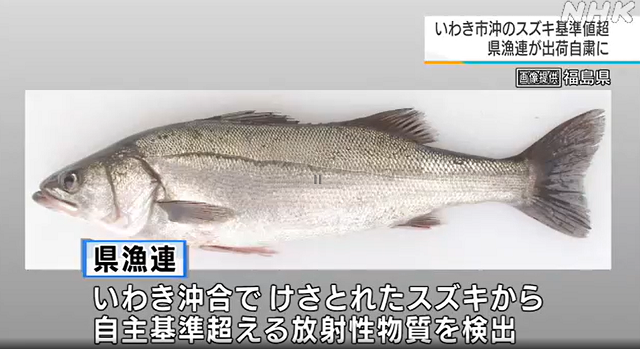Fukushima: The 85.5 Bq/kg radioactive cesium-137 was detected in the sea bass
- Normal Liver Cells Found to Promote Cancer Metastasis to the Liver
- Nearly 80% Complete Remission: Breakthrough in ADC Anti-Tumor Treatment
- Vaccination Against Common Diseases May Prevent Dementia!
- New Alzheimer’s Disease (AD) Diagnosis and Staging Criteria
- Breakthrough in Alzheimer’s Disease: New Nasal Spray Halts Cognitive Decline by Targeting Toxic Protein
- Can the Tap Water at the Paris Olympics be Drunk Directly?
Fukushima: The 85.5 Bq/kg radioactive cesium-137 was detected in the sea bass
- Should China be held legally responsible for the US’s $18 trillion COVID losses?
- CT Radiation Exposure Linked to Blood Cancer in Children and Adolescents
- FDA has mandated a top-level black box warning for all marketed CAR-T therapies
- Can people with high blood pressure eat peanuts?
- What is the difference between dopamine and dobutamine?
- How long can the patient live after heart stent surgery?
Fukushima: The 85.5 Bq/kg radioactive cesium-137 was detected in the sea bass.
Voluntary restraint on shipment of radioactive materials exceeding voluntary standards from landed sea bass.
Radioactive substances exceeding the standards voluntarily set by the Fukushima Prefectural Fisheries Federation were detected in the sea bass caught off the coast of Iwaki City, Fukushima Prefecture on the 7th, and the prefectural fishing federation suspended the shipment of sea bass.

According to the Fukushima Prefectural Fisheries Federation, on the morning of the 7th, radioactive materials exceeding the standards voluntarily set by the Fukushima Prefectural Fisheries Federation were detected in sea bass caught in a fishing ground 8.8 kilometers off the coast of Iwaki City, at a depth of about 75 meters.
After a detailed investigation by a prefectural agency, radioactive cesium-137 was detected at a concentration of 85.5 becquerels per kilogram.
Although this is below the national food standard of 100 becquerels per kilogram, it exceeds the standard of 50 becquerels set voluntarily by the Prefectural Fisheries Federation.
For this reason, the prefectural fishing federation has decided to collect all sea bass landed in the prefecture on the 7th and refrain from shipping until the value below the voluntary standard continues for a certain period of time.
Suzuki’s voluntary restraint on shipments is the first since the country’s shipment restrictions were lifted in April 2018, about five years ago.
In the prefecture, radioactive materials exceeding the national standard were detected in black soy harvested off the coast of Soma City in January last year, and shipping restrictions continue to this day.
Related news:
Japan will discharge 400000 tons of nuclear wastewater into the Pacific Ocean
https://www3.nhk.or.jp/lnews/fukushima/20230207/6050021695.html
Fukushima: The 85.5 Bq/kg radioactive cesium-137 was detected in the sea bass.
(source:internet, reference only)
Disclaimer of medicaltrend.org
Important Note: The information provided is for informational purposes only and should not be considered as medical advice.



